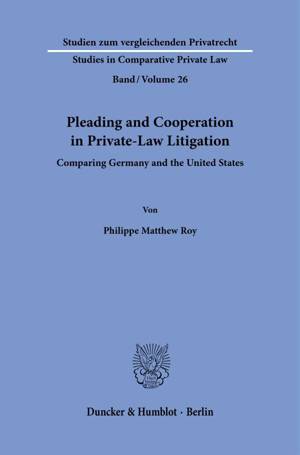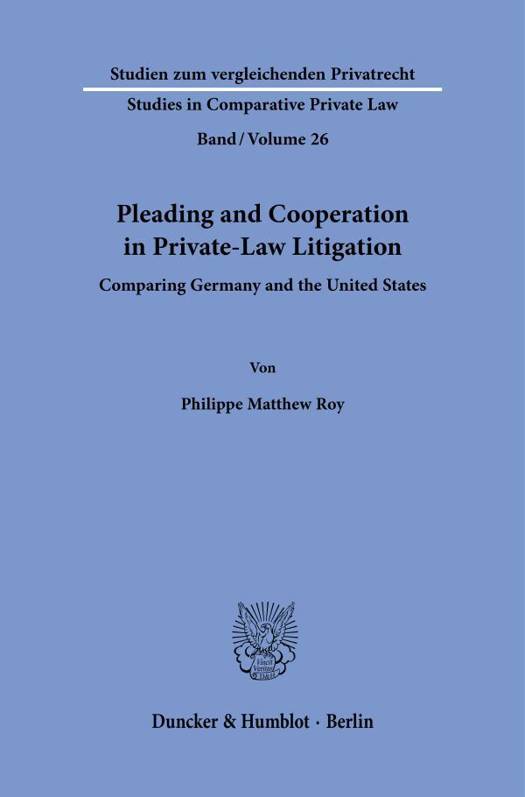
Bedankt voor het vertrouwen het afgelopen jaar! Om jou te bedanken bieden we GRATIS verzending (in België) aan op alles gedurende de hele maand januari.
- Afhalen na 1 uur in een winkel met voorraad
- In januari gratis thuislevering in België
- Ruim aanbod met 7 miljoen producten
Bedankt voor het vertrouwen het afgelopen jaar! Om jou te bedanken bieden we GRATIS verzending (in België) aan op alles gedurende de hele maand januari.
- Afhalen na 1 uur in een winkel met voorraad
- In januari gratis thuislevering in België
- Ruim aanbod met 7 miljoen producten
Zoeken
Pleading and Cooperation in Private-Law Litigation
Comparing Germany and the United States
Philippe Matthew Roy
Paperback | Engels | Studien zum vergleichenden Privatrecht - Studies in Comparative Private Law | nr. 26
€ 169,95
+ 339 punten
Omschrijving
This book compares how civil courts in the United States and Germany balance the burdens on plaintiffs and defendants during pleading and information disclosure. It focuses on pleading requirements, accommodations for plaintiffs due to information asymmetry, and testimonial privileges.At the start of a civil case, courts address key threshold issues before gathering and evaluating evidence. In the U.S., discovery rules provide much broader access to evidence than in Germany. U.S. federal pleading standards were raised after criticism that discovery was too costly and intrusive. However, stricter pleading standards also increase the burden on plaintiffs.The extent to which civil procedure demands cooperation from defendants-such as document and testimony disclosure-reflects deeper value judgments about fair burdens in litigation.The author uses the ideal types of legal formalism and legal realism to analyze the jurisprudential foundations of German and U.S. approaches to pleading and information disclosure. The book concludes that key procedural principles and long-standing practices explain major differences between the two systems. In Germany, pleading and cooperation rules tend to favor defendants, while in the United States, they generally favor plaintiffs.
Specificaties
Betrokkenen
- Auteur(s):
- Uitgeverij:
Inhoud
- Aantal bladzijden:
- 213
- Taal:
- Engels
- Reeks:
- Reeksnummer:
- nr. 26
Eigenschappen
- Productcode (EAN):
- 9783428192632
- Verschijningsdatum:
- 6/11/2024
- Uitvoering:
- Paperback
- Formaat:
- Trade paperback (VS)
- Afmetingen:
- 155 mm x 231 mm
- Gewicht:
- 326 g

Alleen bij Standaard Boekhandel
+ 339 punten op je klantenkaart van Standaard Boekhandel
Beoordelingen
We publiceren alleen reviews die voldoen aan de voorwaarden voor reviews. Bekijk onze voorwaarden voor reviews.









